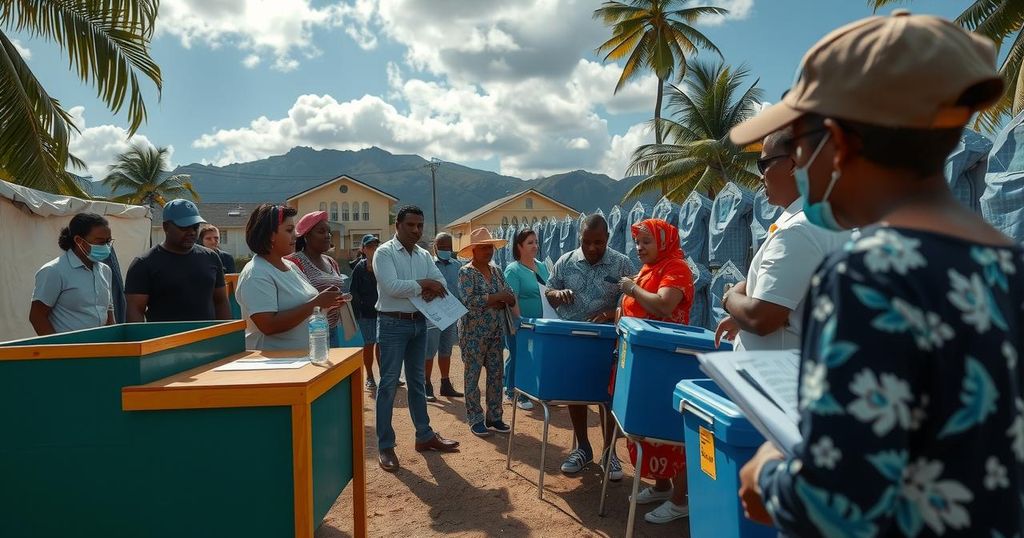Mauritius Parliamentary Elections: A Test of Democracy Amid Scandal

Mauritius held a parliamentary election focused on political stability and economic growth, shadowed by a phone-tapping scandal affecting Prime Minister Pravind Jugnauth’s campaign. The election came after Britain ceded sovereignty of the Chagos Islands, but the revelation of leaked conversations raised concerns about democratic integrity and governance. Voter turnout was 70%, with both major parties expressing confidence in victory and promising reforms to address social issues.
Mauritius held a significant parliamentary election amidst rising political tension fueled by a phone-tapping scandal. The election was pivotal for the economic stability of the country, coinciding with a historic agreement wherein Britain conceded sovereignty over the Chagos Islands, a matter long contested by Mauritius. However, the discovery of secretly recorded conversations involving key political figures undermined the incumbent Prime Minister Pravind Jugnauth’s campaign and prompted widespread societal concern regarding civil liberties and democratic integrity. The vote featured a competition between Jugnauth’s Militant Socialist Movement and former Prime Minister Navin Ramgoolam’s Alliance of Change for control of the 70-seat National Assembly. Both factions displayed confidence in their electoral prospects and made promises to alleviate poverty and lower living costs. Notably, voter turnout reached 70 percent, although comparisons to past elections were not provided. Observers from organizations such as the African Union were present to oversee proceedings, indicating a commitment to a fair electoral process despite underlying tensions. The backdrop of the election included concerns about governance and institutional stability. Critics have noted a decline in checks and balances within Mauritian political structures, exacerbated by procurement scandals and the stifling of opposition parties. Additionally, the approval of the Chagos agreement presented mixed sentiments, particularly in light of the long-term lease of Diego Garcia to the United States for military purposes. It highlights the complexities surrounding the notion of “decolonization” celebrated by Prime Minister Jugnauth while facing challenges from emergent political factions advocating for reform. As Mauritius progresses, the demand for political accountability and economic diversification remains paramount.
Mauritius is a nation characterized by a long-standing history of political stability and economic growth since gaining independence from Britain in 1968. This parliamentary election is particularly crucial as it reflects the country’s ongoing political dynamics and the impact of external agreements, such as the recent deal over the Chagos Islands. Additionally, the integrity of the electoral process and citizens’ rights to free expression are under scrutiny, especially in light of recent controversies surrounding government surveillance and alleged corruption. Observers have noted that the political climate is marked by calls for reform and accountability amid longstanding leadership from a few influential families.
In conclusion, the parliamentary election in Mauritius was not only a critical civic exercise but also a reflection of the ongoing struggles within the nation’s political landscape. The intertwining issues of governance, economic stability, and civil liberties all play a significant role as the electorate demands transparency and reform from their leaders. How the newly elected government addresses these challenges will be pivotal for the future of Mauritius as it seeks to maintain its status as a leading democracy in Africa.
Original Source: www.news-expressky.com








